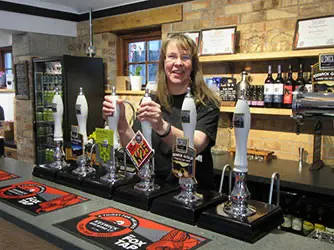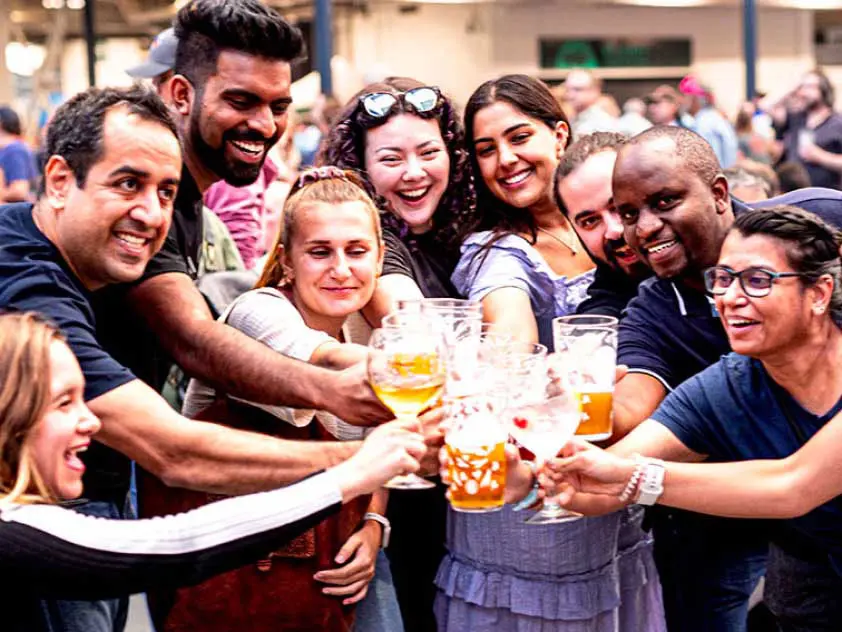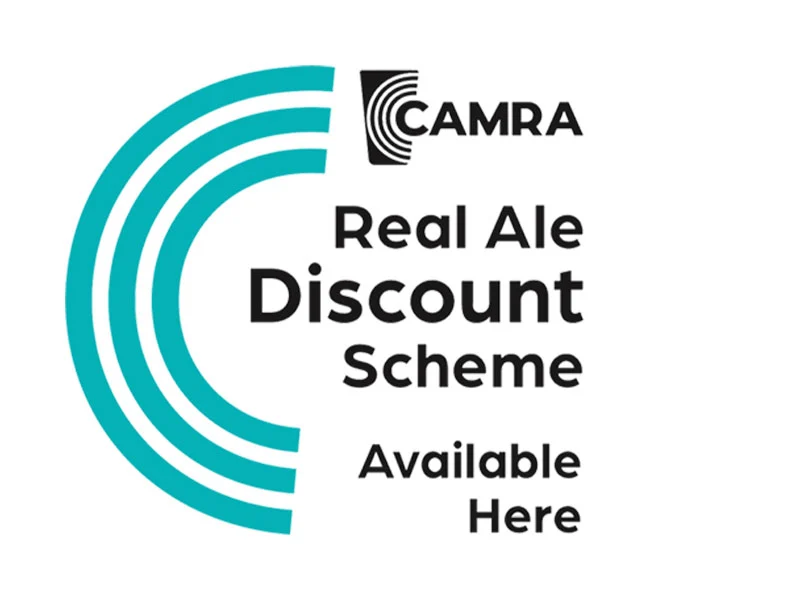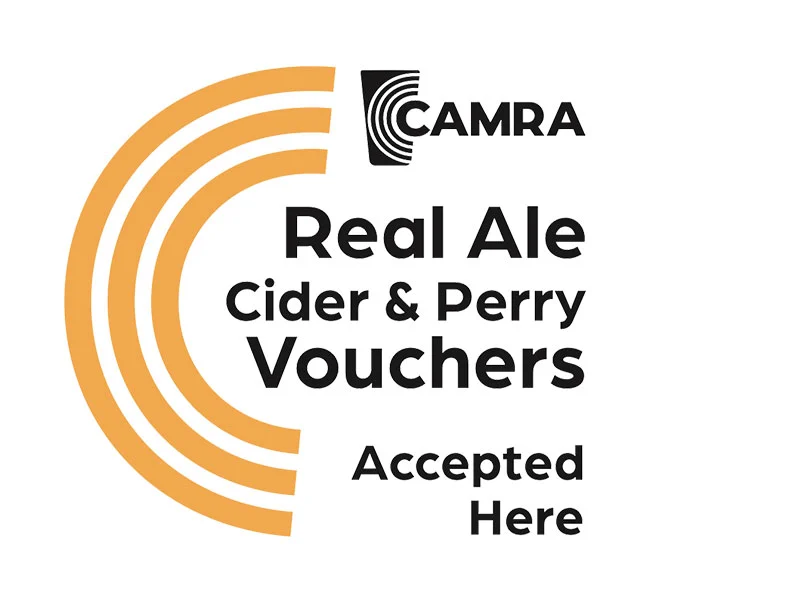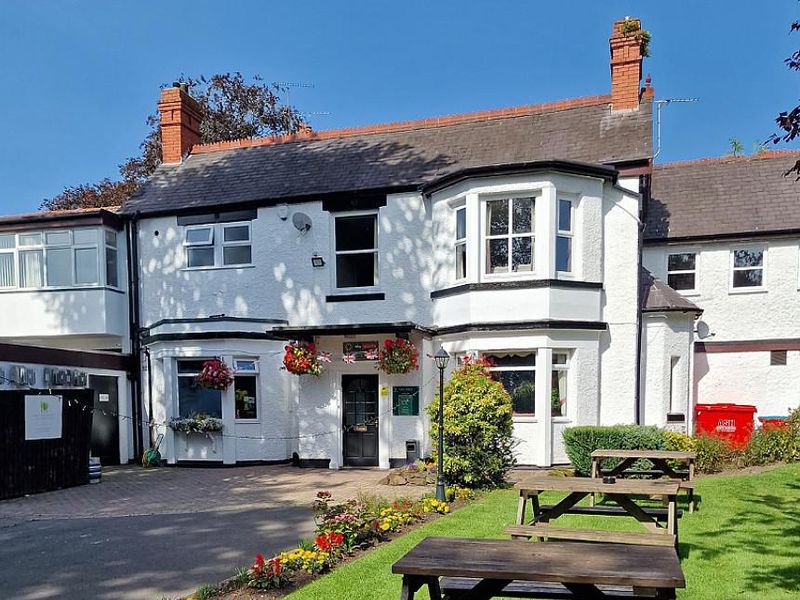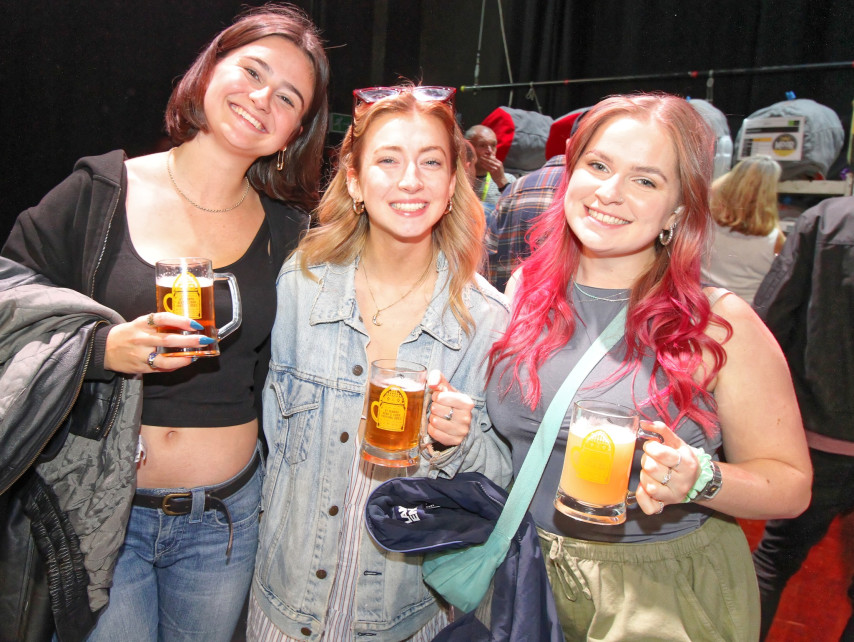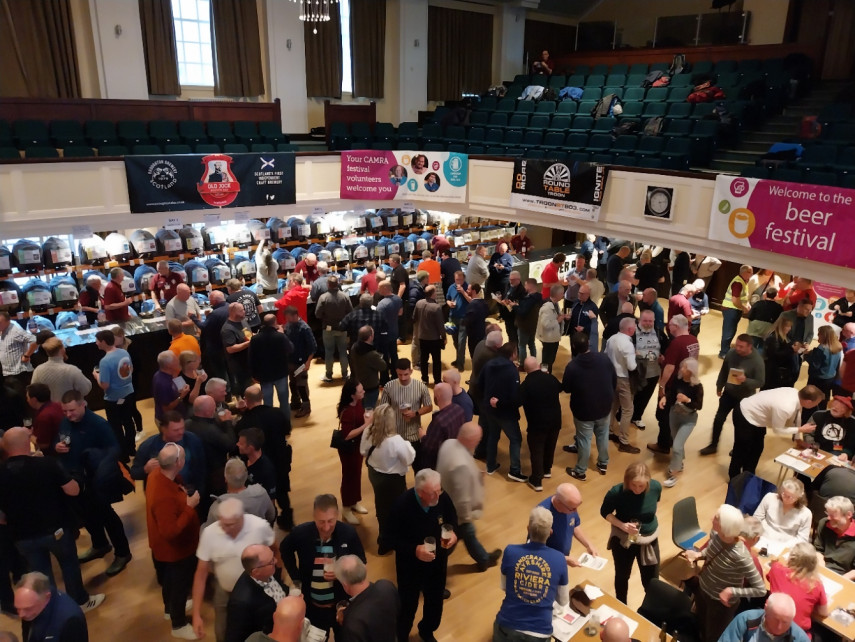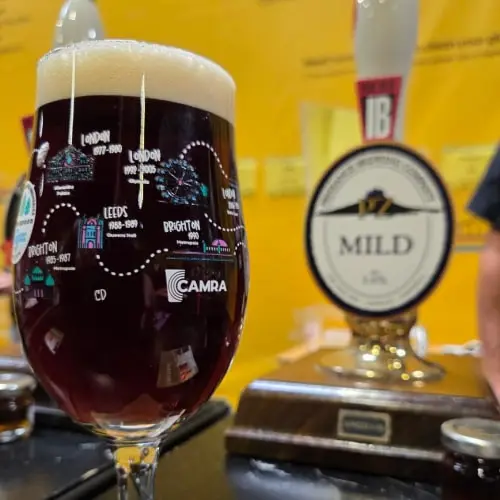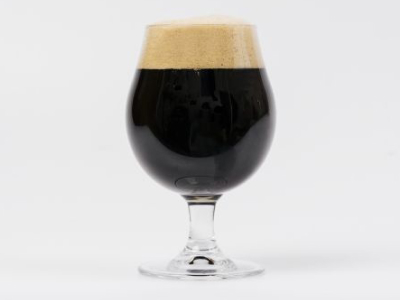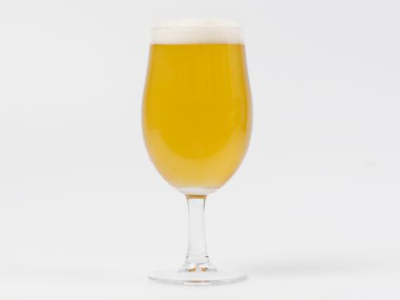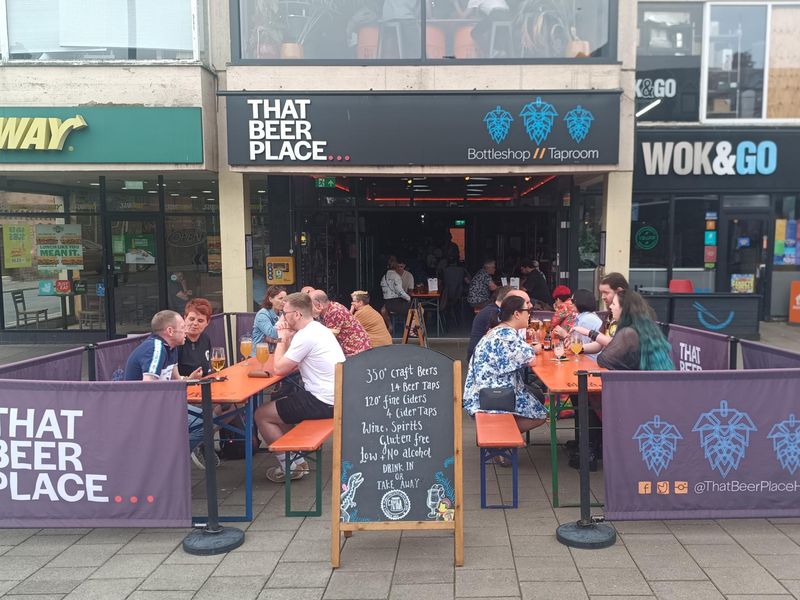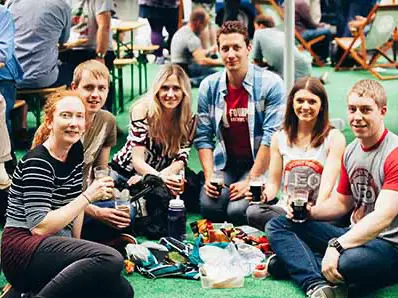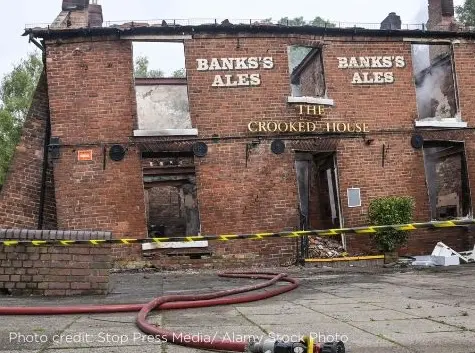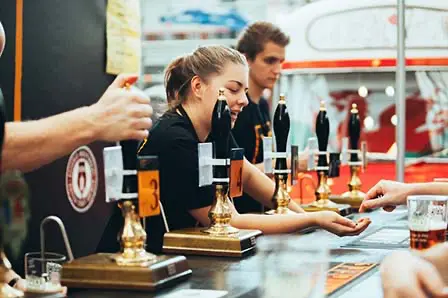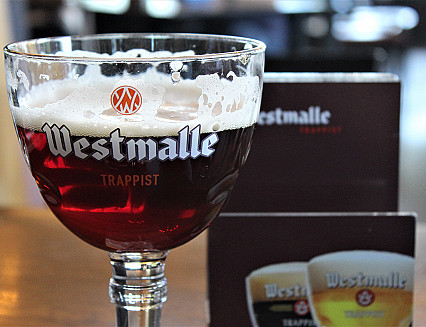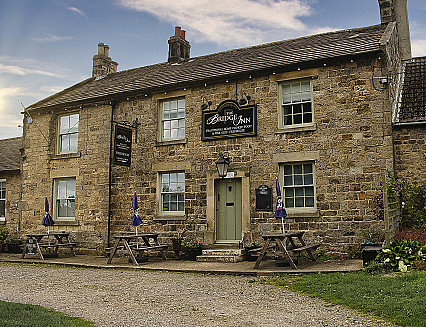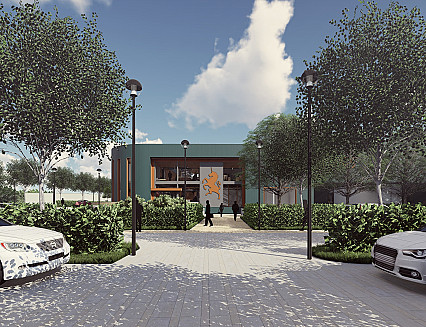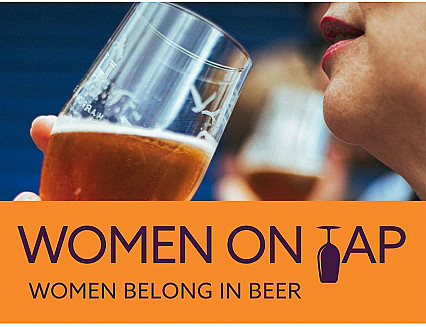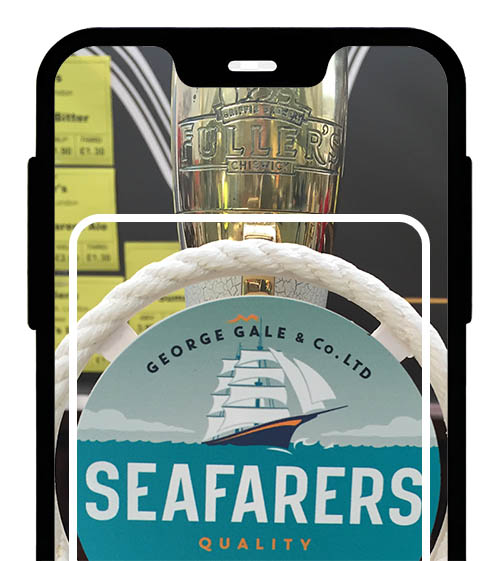The Firkin Saga by David Bruce, Right Book Press, £18.99
In July 1979, when David Bruce transformed the boarded-up Duke of York under a railway arch in a run-down area of South London he launched not only the Firkins but he also changed the way we view pubs and what we expect from them.
The Goose and Firkin was packed from day one. Drinkers piled in to enjoy the beer brewed in the cellar and to eat the freshly prepared food. There was live music on a piano and – heavens to Betsey – the pub was fun.
Before the Firkins, pubs – especially in large towns and cities – were utilitarian and often downright unwelcoming.
In total, David Bruce – who had learned the brewing skills with stints with Courage and Theakstons – opened 11 Firkins in London and Bristol. When he sold the chain at the end of the 1980s many other pubs had cashed in on their success.
Several brewers installed small brewing kits in some of their pubs. They improved the food offer and offered live music and other forms of entertainment.
The likes of Charrington, Courage, Ind Coope, Truman and Watneys, the big London brewers of that time, had learned from David that they needed to attract customers to their outlets. Several of the pubs that became Firkins, like the original Duke of York, were owned by those brewers. The pubs had failed and were derelict but reopened and boomed as Firkins.
If all this seems a long time ago and in a different age, think again. Pubs face similar problems today, with one a day closing. Of course, they can’t all be saved – government punitive policies will kill many of them – but some can stay open and thrive in the right hands.
There’s a lot to learn from The Firkin Saga, but first and foremost it’s a rollicking good read. David has always had an eye for publicity and would dress up as a goose, a fox or a frog to advertise his latest acquisitions.
There were also dangers along the way. David had his nose smashed by members of the National Front at the Fox and Firkin in Lewisham. Squatters occupied the pub that became the Flounder and Firkin in Highbury and it took a year to evict them.
When he opened the Phantom and Firkin in Plaistow, East London, he was alarmed to find bullet holes in the door and window with a note from the Inter City Firm of football hooligans announcing “We will be back to get you”. Fortunately, the success of the Phantom among better-behaved locals kept the thugs at bay.
The Firkins played an important social role. The pubs were welcoming to women at a time when most licensed premises were men-only drinking dens. The Firkins that had gardens or sufficient inside space were made attractive to families, enabling children to get a taste for pub life.
I got to know David Bruce in 1979 when he opened the Goose and we have kept in touch ever since. When I worked in Islington, North London, for a few years I drank regularly in the Flounder. As well as good beer and food, it had an enormous fish tank made of reinforced glass, necessary in case there were fisticuffs between Arsenal supporters and away fans.
I also visited the amazing Phoenix and Firkin on a number of occasions. It was built in the old Denmark Hill train station above the railway tracks and it spawned one of David’s best or worst T-shirt slogans: “If Phoenix my pint I’ll Firkin punch him”.
David’s success was made possible in no small measure by the support of his indefatigable wife Louise, who kept a close eye on the purse strings. She also survived the Hungerford Massacre in 1987 when a lone gunman, Michael Ryan, went on the rampage in Hungerford where the Bruces had a house on the high street.
She took refuge under a table with her daughter, Rebecca, while Ryan slaughtered 16 people, including his own mother. Louise refused to come out from her hiding place until David rushed in after a frantic journey from London.
Between them, they battled the enormous bureaucracy that makes running a business a nightmare. HMRC, Health and Safety and the Fire Department are just a few of the agencies waiting to pounce. The Bruces found, for example, that if a Firkin was successful in selling beer then the business rates on the pub would double or treble overnight.
Plus ça change…
Undaunted, David expanded or, as he says, the goose spread its wings. He created Bruwel, a company that built kits for pubs and small breweries. The kits were sold in Britain and Germany and then further afield.
As a result of meeting Charlie Papazian, founder of the American Homebrewers Association, David became a regular speaker at the association’s conferences. He also acted as an advisor to a number of businesspeople keen to start their own small breweries in the US and he invested in a number of them.
His most successful investment was in Elysian Brewing that grew to selling beer in 11 states. It was eventually bought by Anheuser Busch – now AB InBev – and made a healthy return for David and the other founding investors.
In France he launched the Frog and Rosbif brewpubs that produced such beers as Inseine, Parislytic and Dark de Triomphe. The French hated being called frogs but they nevertheless loved the pubs.
When he sold the Firkins for around £5m, David used his new-found wealth to create the Bruce Charitable Trust. He built special boats for the Kennet and Avon Canal that allowed disadvantaged children and disabled people to have healthy floating holidays. For this work, he was awarded the OBE.
But the brewing itch returned and had to be scratched. David went back to running a small number of pubs with breweries under the name of Bertie Belcher.
He teamed up with another serial investor and entrepreneur, Clive Watson, to found first Capital Pubs and then Capital Pubs 2 that were eventually sold to, respectively, Greene King and Young’s.
There have been a few blips along the way. A joint venture with Brakspear, the Henley brewery, created Honeypot Inns. This ended in failure, mainly due to personality clashes at boardroom level.
David took over the West Berkshire brewery and built a new brewery and taproom but this venture became a victim of Covid and lockdown and went into administration (the business has since been reopened by new owners as Renegade brewery).
David keeps on running. He has taken a new route, running a small chain of Cobbs farm shops.
But be assured, The Firkin Saga is principally and primarily about pubs and beer. There’s a lot to learn from the story of the Firkins. It’s a joy to read, both witty and wise, with contemporary photos and brilliant Ken Pyne cartoons.
Above all, it’s a call to arms, to continue to battle to save our unique pub heritage and culture.
The Firkin Saga is available from Right Book Press, Amazon Books and branches of Waterstones.
